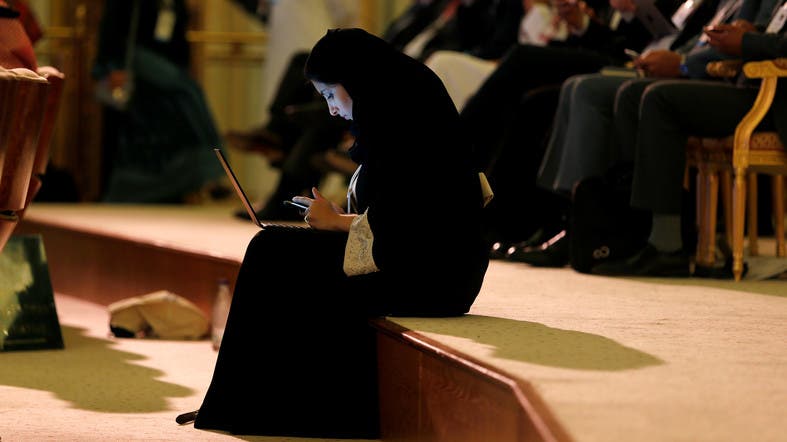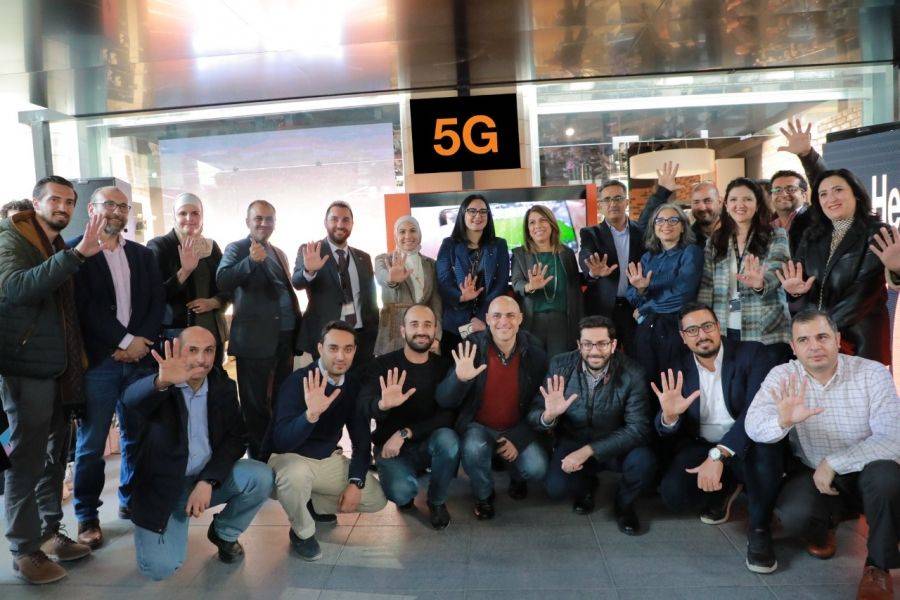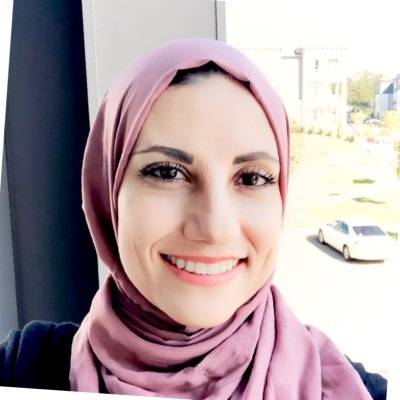Middle East’s largest VC fund to invest in ‘homegrown’ Saudi tech startups

Saudi Technology Ventures (STV), the Middle East’s largest venture capital fund, plans to fill a growing gap between supply and demand in the region’s digital startup space, STV’s chief executive Abdulrahman Tarabzouni said in an exclusive interview with Al Arabiya English.
"We place value in homegrown champions, and we aim to remain ‘in the game’ by finding and investing in the best tech startups in KSA,” the CEO said.
A gap between supply and demand has led to a growing appetite for technology startups in Saudi Arabia and the wider Middle East, Tarabzouni said, adding that STV will continue capitalizing on these opportunities.
The Kingdom, which is ripe for digital disruption, is set to drive the growth and value of tech startups in the region as the country’s government continues to push ahead with wide-ranging economic reforms, he added.
The $500 million tech venture capital (VC) fund is looking to back startup founders, young entrepreneurs, and companies in order to meet the demand for new technology.
As part of putting their plan into action, STV in June co-lead an $8.6 million investment round in Noon Academy, an edtech platform in the Middle East and North Africa that gives students access to social cooperative learning and tutoring. The platform has already served more than 2 million students across Saudi Arabia and Egypt.
In Saudi Arabia alone, venture capital investments are expected to grow ten-fold over the next six years – from $50 million last year to $500 million annually by 2025, STV said in its latest report on the sector.
The report added that between 2019 and 2025, cumulative VC injections could reach some $2 billion.
Riyadh-based STV says this trajectory would place Saudi Arabia alongside other countries where VC has played a major role in the economy, such as France, the UAE, and South Korea – all countries where VC’s annual investment is equal to 0.1 percent of gross domestic product (GDP).
"Reaching $500 million by 2025 implies an average yearly growth rate of 40 percent over the next seven years,” according to the report.
Seeking success stories
In 2018, STV, which is anchored by Saudi Telecom Company – the Kingdom’s largest telecom services provider – lead and co-lead around $250 million worth of funding. This accounts for roughly 30 percent of about $893 million of the region’s VC for the year.
"Last year, we invested close to $100 million in [Saudi Arabian] start-ups and led or co-led circa 30 percent of deals by capital volume in the region,” the CEO told Al Arabiya English.
One of STV’s leading deals in 2018 was Mrsool, a Riyadh-based on-demand delivery startup that had 4 million registered users by the end of 2018 and processed about 1 billion riyals worth of goods last year.
Tarabzouni said he is convinced that Mrsool will become a Saudi Arabian "unicorn” – a term used to refer to a startup with a valuation of $1 billion or higher.
Since UAE-founded Careem was purchased by Uber for $3.1 billion in March, the region has been on the lookout for the next big success story.
"It was incredibly exciting to have been a part of [the purchase] with Careem’s founders,” Tarabzouni said.
Tarabzouni believes Careem’s exit has not necessarily changed dynamics for startups in the region, but has instead proven that strong local tech companies can succeed on a global scale, especially those with a deep understanding of the VC market.
It has also "has validated venture capital as a viable investment vehicle in the region; and fueled tech optimism among talents and investors,” he said.
The hunt for talent
Despite the bullish outlook, as well as strong demand for digital startups, talent is still one of the biggest challenges facing the VC technology segment in Saudi Arabia and the Middle East.
A homegrown success story such as Careem’s, however, could encourage youth in the region and give them an extra "spring in their step,” Tarabzouni believes.
"Talent remains the biggest bottleneck, and this is a universal problem that’s not specific to any country in particular, but we definitely have a lot of work to do,” he said.
Saudi Arabia’s economic reform plan Vision 2030 – spearheaded by Crown Prince Mohammed bin Salman – has recognized the need to support and incubate start-ups, small and medium enterprises, as well as homegrown businesses.
The Kingdom’s ambitious push for reforms means that now is the time for VCs to capitalize on demand, said Tarabzouni.
"The fact that the government is offering long-term initiatives, residency programs, and launching innovative initiatives to help stimulate the import of talent into the country is great,” he said.
"Condensation of pools of talent in the long-term will allow VCs such as ourselves the ability to deploy our capital across a broader selection of startups,” he told Al Arabiya English.
While tech ecosystems in the region – including Saudi Arabia – are maturing, key tech infrastructure is still needed. A more diverse talent pool and enhanced business regulations would also serve to support new investments.
"All the established industries are ripe for disruption, and we anticipate startups to transform the landscape as we know it,” Tarabzouni said.








